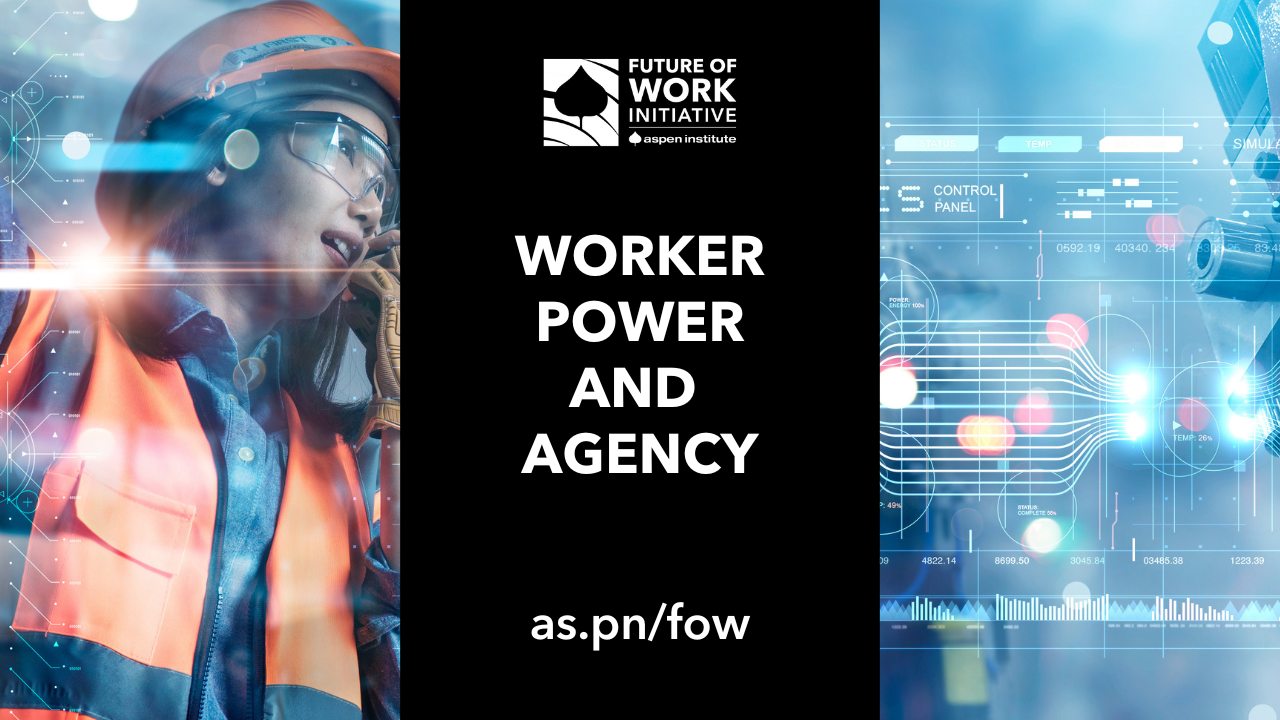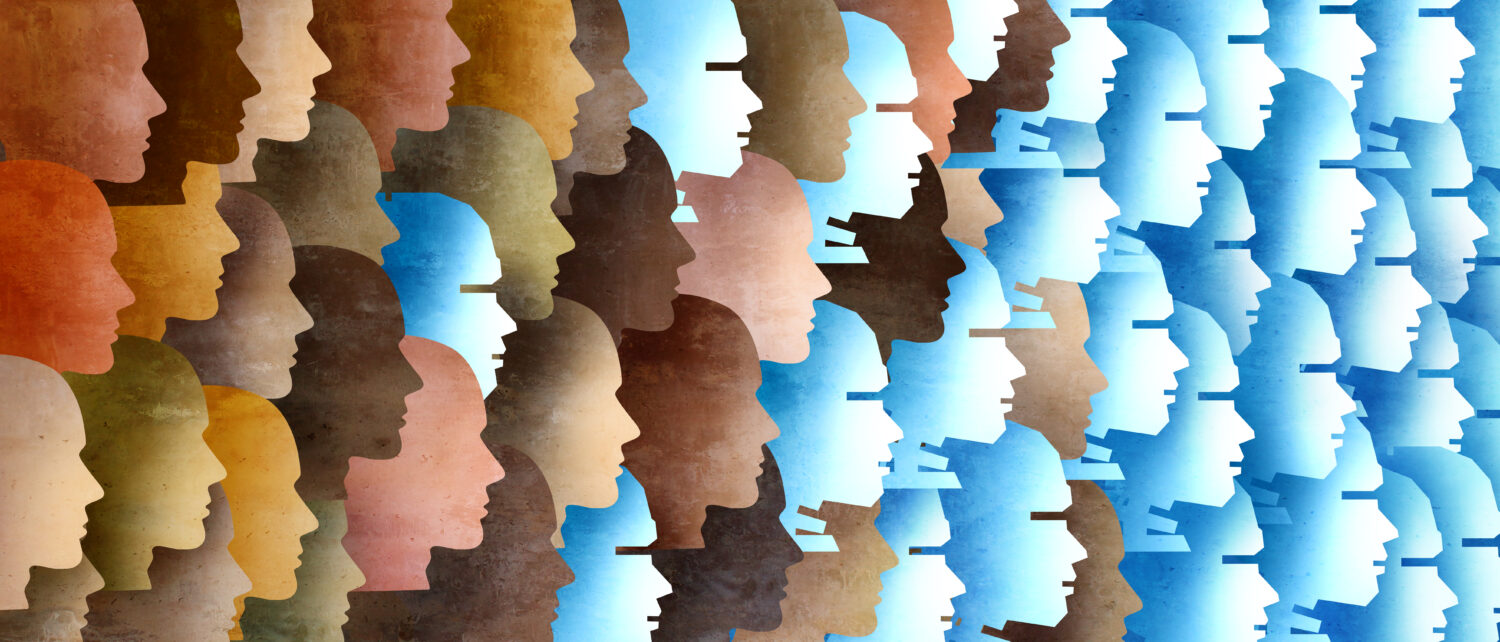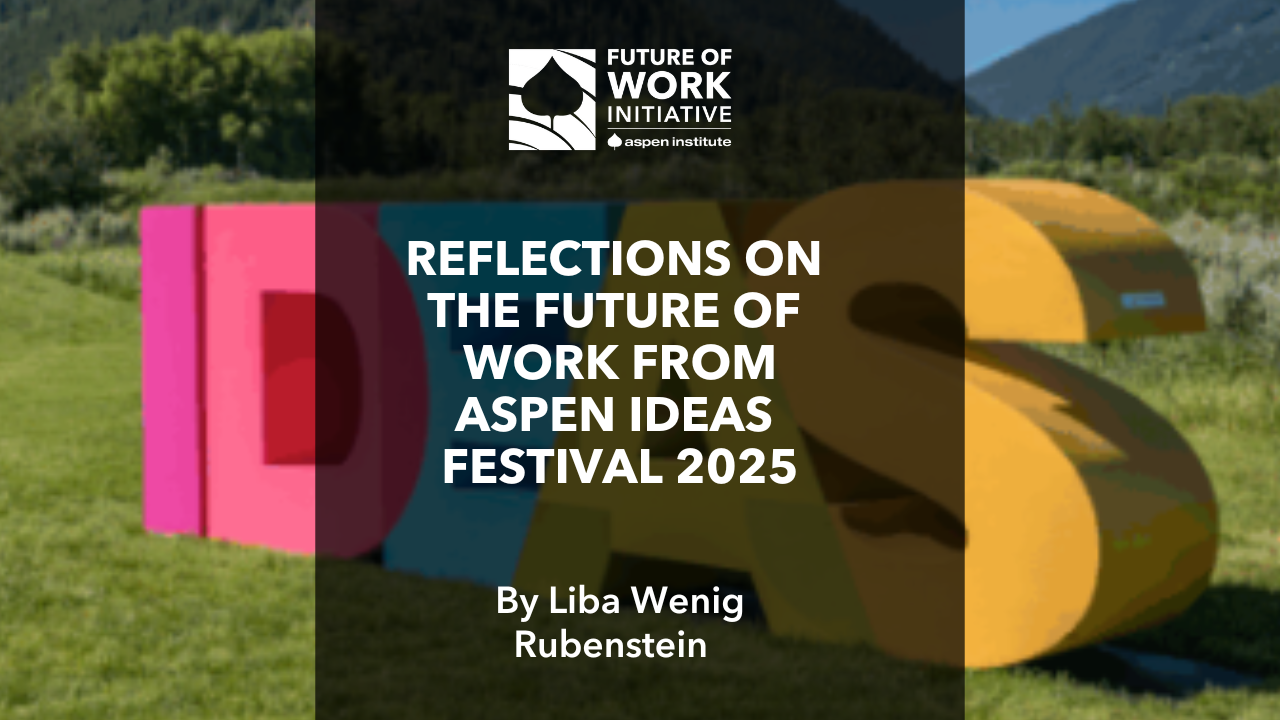Power, Agency, and Autonomy: The Future of Worker Voice

April Verrett
President, SEIU
Every day, millions of American workers play by rules they never wrote, rules that all too often fail to consider the human aspect of work. The home care worker whose algorithm-assigned schedule leaves no time between clients. The security guard whose digital tracker penalizes bathroom breaks. The worker whose employer uses surveillance tools to identify workplace organizing and illegally retaliates against them for exercising their legal right to form a union. The warehouse worker whose pace of work is set by software with no regard for their health or safety.
These aren’t just isolated problems—they’re the predictable outcome of a system where those writing the rules have deliberately excluded the people who must live by them. At this ten-year mark of debate and discussion about the future of work, perhaps the most important thing we can address with hindsight is that, while technology can and has replaced some jobs, it has also profoundly shifted power dynamics and control in the workplace, as technology co-opts worker agency and autonomy, intensifies work, and minimizes recourse. As this trend accelerates with the growing use of AI, we must create spaces for worker-led technology adoption that treats human beings with respect and dignity.
The 2 million members of the Service Employees International Union who I represent—caregivers, janitors, public service workers, airport staff, security officers, and hospital employees–are the people who keep this country running. They clean planes, care for your grandmother, protect city buildings, and make sure our hospitals and schools serve all of us. They do essential work—work rooted in judgment, care, and connection.
Rather than using technology to undermine agency in the workplace, employers and policy-makers have the opportunity to instead use it to support these vital workers. To achieve a future in which workers are prepared and empowered to leverage technology to their benefit, SEIU is advancing an agenda that includes: sector-wide bargaining to establish minimum standards; prohibition on AI discipline; protecting worker rights to override automated systems; full transparency in data collection; and meaningful retraining when technology transforms jobs.
Because here’s what we know: when working people unite to demand new rules, we’ve never lost a fight we were determined to win.
Rules Rigged By Design
A decade ago, we didn’t fully grasp how profoundly technology would reshape the workplace—not just by automating tasks, but by transforming decision-making, shifting control, and accelerating the breakdown of traditional employment relationships. We believed that tools like retraining or reskilling would be enough to help workers adapt. But those tools were designed for a different kind of disruption. They can’t match the scale or speed at which algorithms now make invisible decisions about schedules, pay, and performance—or the way AI enables corporations to further fracture responsibility through subcontracting and app-based control. The threat isn’t just lost jobs. It’s lost agency.
This impact extends to sectors across our economy. In hospitals, AI systems are used to make staffing and patient care decisions that experienced nurses say often prioritize efficiency over quality care. In home care, algorithms slash service hours for vulnerable clients based on rigid formulas that ignore human needs. In security and janitorial work, companies implement gamified tracking apps that treat essential workers like pieces on a digital game board rather than skilled professionals.
Let’s be honest about what’s happening: the rules governing work in America have always been tilted against certain communities. For generations, this country’s economic rulebook has treated Black and brown labor as disposable, women’s work as less valuable, and immigrant contributions as exploitable.
Technology hasn’t changed these rules—it’s just digitized them. Algorithms don’t make neutral decisions; they encode and amplify existing biases, transforming historical discrimination into automated policy. The rules might look different, but the outcomes remain painfully familiar.
The uncomfortable reality is that technology isn’t neutral. It inevitably reflects the values and biases of those who design it. When those values are rooted in inequality and profit at all costs, the outcomes will naturally follow suit—widening divides rather than closing them.
The Path Forward: Collective Action
So how do we break this cycle? Through organizing, legislation, and holding power to account—the time-tested tools that have always driven progress.
At SEIU, we firmly believe workers deserve a meaningful voice in how technology affects their livelihoods. We’ve seen promising examples of what’s possible. In Pennsylvania, Governor Josh Shapiro’s administration partnered with our members—state employees with SEIU Local 668—to establish a Generative AI Labor and Management Collaboration Group. Together, they’re developing ethical AI guidelines with workers at the table. This collaborative approach represents what shared power looks like in practice.
In fact, time and again unionization and collective bargaining has shown itself to be key to ensuring that employers introduce new technology in collaboration with employees and unions, and that workers are protected from, or compensated for, impacts to their jobs. Unions have also successfully negotiated with employers over surveillance, pace of work, and discipline by AI.[1]
But we need more than contract by contract successes—we need enforceable standards across the board. That’s why we’re advancing a comprehensive agenda:
First, we need to enact legislation to strengthen workers’ ability to form unions and bargain collectively. We need sector-wide bargaining to establish uniform workplace standards across industries. This creates a foundation of dignity and effective collaboration that prevents the race to the bottom, closes loopholes for bad actors, and ensures basic protections for every worker regardless of individual employer.
Second, we must prohibit discipline by AI. Every worker deserves human judgment, and a grievance procedure to appeal algorithmic decisions—not automated dictates—when facing discipline or termination. The stakes are too high for algorithms to make these life-altering calls.
Third, workers need the right to override AI instructions and automated systems. In safety-critical roles especially, human judgment must take precedence, even when it means challenging an algorithm’s recommendation. Experience and context matter. And there must be safeguards against simply using humans as rubber stamps or, worse, liability shields that protect the automated systems.
Fourth, we demand full transparency regarding data collected and algorithms used by employers. When companies deploy AI systems, they must disclose exactly what worker information they gather, how they use it, and why. They must also disclose any AI decision-making authority that impacts workers.
Finally, when AI changes the nature of a job, employers must invest in worker-centered job redesign and provide real opportunities for upskilling workers to work alongside technology—developed with worker input and advice.
Let’s be candid: the corporations building these systems won’t voluntarily limit their power. Their focus will remain on maximizing shareholder value—unless we create countervailing forces through bold public policy, strong unions, and a labor movement ready to challenge both Silicon Valley and Wall Street.
This Is About Power — And Our Collective Future
At its core, the future of work isn’t a technological question. It’s a question of power.
Who holds it. Who lacks it. And who gets to decide.
Right now, AI and algorithmic management are concentrating unprecedented control at the top while systematically disempowering everyone else. But this outcome isn’t inevitable. We can build an alternative future where technology enhances rather than diminishes human work. Where working people participate as decision-makers, not mere data points. Where care, connection, and community take priority over profit margins and efficiency metrics.
This better future won’t arrive on its own. We must organize for it with determination and purpose.
The good news? Working people know exactly how to fight for what’s right. We’ve done it throughout history—in textile mills and coal mines, in fast food restaurants and hospital break rooms. And we’re doing it now in the age of AI and algorithms.
Because here’s the fundamental truth no algorithm can calculate: what happens when millions of working people stand together, speak with one voice, and demand the dignity and respect they deserve.
The future of work is still being written. Let’s make sure it works for all of us.
[1] https://www.americanprogress.org/article/unions-give-workers-a-voice-over-how-ai-affects-their-jobs/
About the Author

SEIU President April Verrett is a fighter for working people and a visionary leader at the forefront of building a modern-day labor movement that is anti-racist at its core.
Having dedicated most of her career to helping workers build power through their unions, Verrett is driven by the conviction that unions give workers a platform to fight for more than wages, benefits and working conditions. Unions for all can help eradicate generational poverty, dismantle structural racism, strengthen our democracy and generally improve workers’ lives and communities.
Originally from the South Side of Chicago, Verrett was raised by her grandmother, a Union Steward for SEIU Local 46, who taught her the values of perseverance, collective action, and community.
Verrett served as Secretary-Treasurer of SEIU for two years, leading the union’s strategic planning process to develop its plan for the future. As President of SEIU Local 2015, California’s largest local union, and the nation’s largest long-term care union, she fought on behalf of more than 400,000 long-term care providers working in both nursing homes and private homes throughout California. She has also served as Executive Vice President of SEIU Healthcare Illinois and Indiana (HCII), where she played an instrumental role in holding corporations accountable and advocating for them to pay their fair share in taxes. At SEIU Verrett has also chaired the union’s National Home Care Council, co-chaired the National Organizing Committee, and served as a member of the Finance Committee.
Verrett brings ambitious vision, courageous leadership and a life experience that fuels her unshakeable belief in the power to make change when we come together across race. She has a firm belief that our power comes from our diversity.
About This Series
This post is part of a series called “Back to the ‘Future of Work’: Revisiting the Past and Shaping the Future,” curated by the Aspen Institute’s Future of Work Initiative. For this series, we gather insights from labor, business, academia, philanthropy, and think tanks to take stock of the past decade and attempt to divine what the next one has in store. As the future is yet unwritten, let’s figure out what it takes to build a better future of work.
About the Future of Work Initiative
The Aspen Institute’s Future of Work Initiative, part of the Economic Opportunities Program, empowers and equips leaders to innovate workplace structures, policies, and practices that renew rather than erode America’s social contract.
About the Economic Opportunities Program
The Aspen Institute Economic Opportunities Program advances strategies, policies, and ideas to help low- and moderate-income people thrive in a changing economy.
Join Our Mailing List
To receive occasional emails about our work — including new publications, commentary, events, fellowships, and more — join our mailing list.
Connect on Social Media
For news and updates every day, connect with us on the social media platform of your choice.








